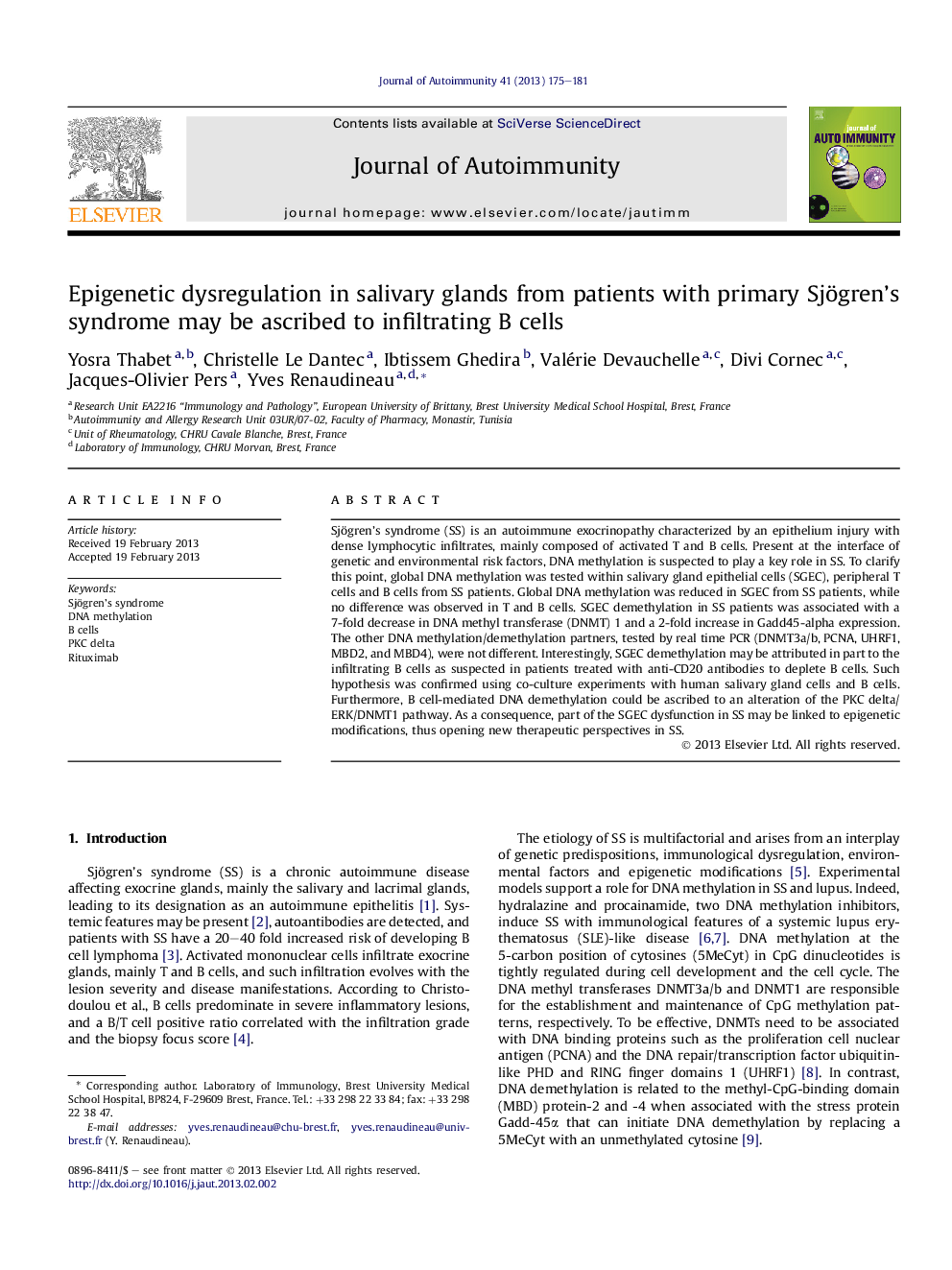| Article ID | Journal | Published Year | Pages | File Type |
|---|---|---|---|---|
| 3367913 | Journal of Autoimmunity | 2013 | 7 Pages |
Sjögren's syndrome (SS) is an autoimmune exocrinopathy characterized by an epithelium injury with dense lymphocytic infiltrates, mainly composed of activated T and B cells. Present at the interface of genetic and environmental risk factors, DNA methylation is suspected to play a key role in SS. To clarify this point, global DNA methylation was tested within salivary gland epithelial cells (SGEC), peripheral T cells and B cells from SS patients. Global DNA methylation was reduced in SGEC from SS patients, while no difference was observed in T and B cells. SGEC demethylation in SS patients was associated with a 7-fold decrease in DNA methyl transferase (DNMT) 1 and a 2-fold increase in Gadd45-alpha expression. The other DNA methylation/demethylation partners, tested by real time PCR (DNMT3a/b, PCNA, UHRF1, MBD2, and MBD4), were not different. Interestingly, SGEC demethylation may be attributed in part to the infiltrating B cells as suspected in patients treated with anti-CD20 antibodies to deplete B cells. Such hypothesis was confirmed using co-culture experiments with human salivary gland cells and B cells. Furthermore, B cell-mediated DNA demethylation could be ascribed to an alteration of the PKC delta/ERK/DNMT1 pathway. As a consequence, part of the SGEC dysfunction in SS may be linked to epigenetic modifications, thus opening new therapeutic perspectives in SS.
► In the etiology of Sjogren's syndrome (SS), epigenetic modifications are suspected. ► DNMT1 expression and global DNA methylation are altered in SS. ► Epigenetic defects are restricted to salivary gland epithelial cells. ► In exocrine glands, DNA methylation is controlled by infiltrating B cells.
